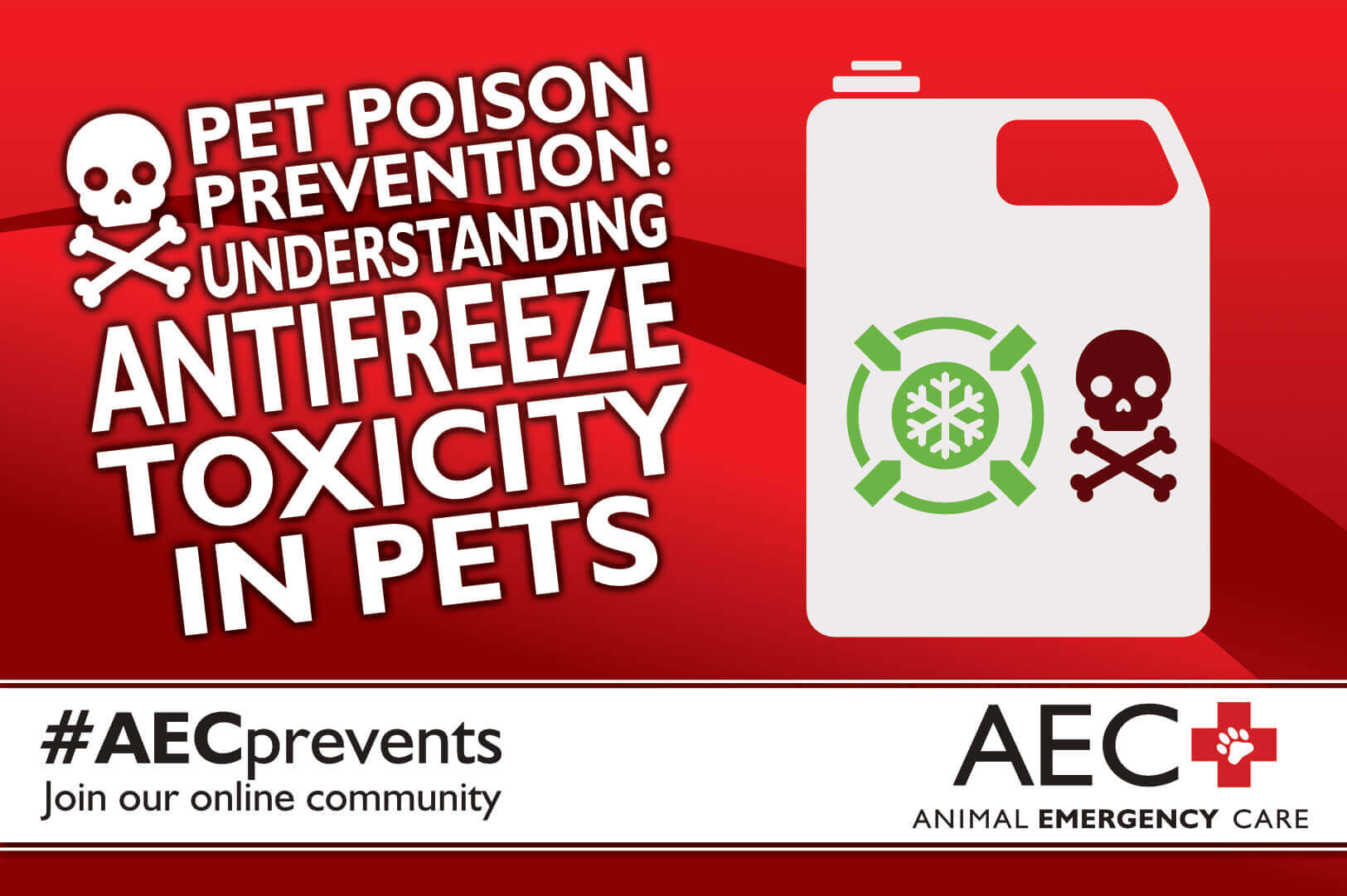The winter season brings chilly temperatures, cozy sweaters, and crackling fires. In addition to ensuring their human and fur family members have winter wardrobes, many people prepare their cars and homes for the cold winter months. Antifreeze is a common chemical used in cars, as well as pipes in the home, to prevent damage from freezing temperatures. However, the active ingredient, ethylene glycol, is extremely toxic to humans and their pets. Our Animal Emergency Care team wants to ensure you are prepared to act quickly if your pet mistakes antifreeze for a sweet treat.
Why is antifreeze dangerous to pets?
The active ingredient in antifreeze, ethylene glycol, is a sweet-tasting, odorless liquid that is present in many automotive products including hydraulic brake and windshield de-icing fluids. Ethylene glycol is also in common household products including:
- Ball point pens and ink
- Certain types of snow globes
- Printer cartridges and stamp ink pads
- Paint and industrial paint solvents
- Some types of eye masks
- Portable basketball hoop posts and bases
Ethylene glycol poisoning is a common pet toxicity because pets find the sweet fluid difficult to resist. Common pet poisoning culprits include leaked radiator fluid ingestion as well as drinking from a toilet in a home with winterized pipes. Additionally, cats are at risk for poisoning if any part of their skin contacts ethylene glycol which is rapidly absorbed into their gastrointestinal (GI) system and can affect the kidney, brain, and liver.
Antifreeze poisoning signs in pets
Small amounts of ethylene glycol are dangerous to pets. Only one teaspoon can be lethal to cats, and one to two tablespoons can be lethal to dogs. Contact your veterinarian immediately if you observe your pet ingesting antifreeze or suspect they may have licked some off the ground. Ethylene glycol is rapidly absorbed in the GI tract and mostly metabolized in the kidneys. Immediate symptoms resemble a human who drank too much alcohol, although your pet may not show obvious kidney disease signs for several days. Early poisoning signs include:
- Nausea and vomiting
- Diarrhea
- Wobbly or uncoordinated movement
- Disorientation
- Increased heart rate
- Weakness
- Tremors
- Fainting
- Low body temperature
After ingestion, some clinical signs may improve in 12 to 24 hours and give a false sense of security that your pet is no longer sick. However, pets can still become dehydrated and have an increased heart or respiration rate during this break in obvious symptoms. More serious clinical signs may occur 24 to 72 hours after ingestion as the toxin is absorbed and processed through a pet’s kidneys. These include:
- Increased thirst and urination
- Excess salivation
- Dehydration
- Mouth ulcers or sores
- Seizures
- Anorexia
- Coma
Antifreeze poisoning diagnosis and treatment in pets
Antifreeze poisoning in pets is a serious medical condition that requires aggressive veterinary care, and death may occur without treatment. Diagnosing antifreeze poisoning can be difficult, especially if a pet owner did not observe the poisoning. Your veterinarian will collect a detailed history and perform a thorough physical exam. A blood, urine or stool test may also be recommended to check for ethylene glycol.
Treatment options depend on the time that has passed since your pet’s poisoning. If your pet is brought to the veterinary hospital less than two hours after ethylene glycol ingestion, your veterinarian may induce vomiting or flush out the stomach to remove any toxin the kidneys have not yet metabolized. During treatment, your pet will receive intravenous (IV) fluid therapy to rehydrate them, and flush any poison from their kidneys. Additional treatments may include:
- Heart monitoring with an electrocardiogram (EKG)
- Respiratory observation and monitoring
- Regular temperature monitoring
- Medication to inactivate the ethylene glycol
- Medication to treat tremors or seizures
- Medications to protect the GI system
- Blood and urine tests to evaluate kidney and liver function
Payment options for antifreeze poisoning treatment in pets
Antifreeze poisoning may require your pet to be hospitalized for several days, as well as numerous progress checks. Such long-term veterinary care can be costly but, fortunately, multiple payment options are available to ensure you can cover the cost of your pet’s emergency care for an accidental poisoning. Care Credit and Scratch Pay allow payments to be spread out over longer periods with delayed interest rates in some cases. Additionally, pet health insurance providers, such as Trupanian, have policies that will pay your veterinary clinic directly which eliminates the need to submit paperwork and wait for reimbursements.
Antifreeze poisoning prevention for pets
When possible, use antifreeze products that contain the safer alternative—propylene glycol. Propylene glycol is less dangerous to pets than ethylene glycol, although large amounts can still cause problems. Other prevention safeguards include:
- Keeping containers tightly closed and out of your pet’s reach
- Cleaning up spills immediately
- Regularly checking vehicle radiators for leaks
- Always supervising pets around vehicles or chemicals
Call your family veterinarian right away if you suspect your pet has been exposed to antifreeze or contact our Animal Emergency Care office and bring in your pet for immediate treatment. #AECprevents


